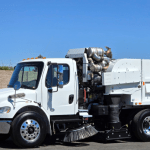Professional chefs understand that the secret to a successful catering business goes beyond culinary imagination and efficient service. An often-overlooked aspect of professional catering is the calibre of the kitchen’s infrastructure—specifically, the quality and reliability of the commercial catering equipment utilized.
Contents
Understanding Commercial Catering Equipment Essentials
The importance of well-chosen commercial catering equipment cannot be overstressed. It not only affects the quality of the food prepared but also determines the efficiency and speed with which culinary creations are delivered. Professional chefs need equipment that is durable, efficient, and versatile, allowing them to adapt to various catering requirements and culinary techniques.
Factors to Consider When Selecting Equipment
Several critical factors come into play when selecting the right commercial catering equipment. These include the size of the catering operations, the menu complexity, the desired speed of service, energy efficiency, equipment maintenance, and of course, the budget. Robust equipment geared for high-volume use can withstand the rigorous demands of a bustling kitchen and save costs in the long run with fewer repairs and replacements.
The Core Components of a Professional Kitchen
Every professional kitchen framework is built upon a selection of core components essential for day-to-day operations. These central elements include commercial-grade ranges, ovens, grills, refrigeration units, and dishwashers, all designed to meet the diverse needs of various catering events.
Commercial Ranges: Power and Precision
Commercial ranges are the workhorses of the kitchen, providing the necessary firepower to cook multiple dishes simultaneously. They’re built for endurance and deliver precision heating which ensures that every dish is cooked to perfection. While the gas range is a popular choice for its quick heat response, electric ranges offer more precise temperature control.
Ovens: Baking and Roasting Specialists
When it comes to baking bread, roasting meats, or perfecting confectionaries, a sturdy and reliable oven stands as a non-negotiable piece of equipment. Convection ovens are especially prevalent due to their ability to circulate hot air and cook food more uniformly.
Grills and Griddles: The Flavour Enhancers
Grills and griddles form the crux of any kitchen aiming to deliver chargrilled flavours and perfectly seared meats. They come in various sizes with multiple heat source options such as gas, charcoal, or electric, giving chefs flexibility in their cooking approach.
Refrigeration: Keeping it Cool and Fresh
Proper refrigeration is vital for food safety and quality. Professional kitchens require robust refrigeration systems that can safely store a variety of ingredients at optimal temperatures. Walk-in coolers, freezers, and refrigerated prep tables are just a few types of refrigeration equipment that are indispensable in a commercial setting.
Dishwashers: The Unsung Heroes
Dishwashers might not contribute directly to the creation of culinary delicacies, but they are essential for maintaining hygiene and swift service. High-temperature dishwashers not only clean efficiently but also sanitize the utensils, ensuring that safety standards are consistently upheld.
Specialty Equipment for Innovative Cooking
Apart from the basics, modern commercial kitchens also incorporate specialty equipment that caters to unique cooking methods and enhances culinary creativity. Specialty ovens like wood-fired or pizza ovens, sous vide machines, and blast chillers contribute significantly to a kitchen’s functional versatility. These pieces of equipment allow chefs to explore innovative cooking techniques while maintaining impeccable quality.
The Investment in Quality Equipment
Investing in high-quality commercial catering equipment might require a considerable initial outlay, but it’s a decision that pays dividends in the long run. Not only does it affect the taste and presentation of the food, but it also impacts service efficiency, which can significantly influence customer satisfaction and repeat business.
Finding the Right Supplier
Choosing a reputable supplier for procuring commercial catering equipment is crucial. A dependable supplier will not only provide equipment from top brands but will also offer after-sales support, including maintenance and repair services. Professionals should seek suppliers that have a comprehensive understanding of the culinary industry and can give expert advice tailored to the specific needs of the kitchen.
Maintaining and Upgrading Equipment
Regular maintenance of commercial catering equipment is a must to ensure its longevity and performance. Routine cleaning, periodic servicing, and immediate attention to repairs will keep the kitchen running smoothly and prevent unexpected downtime during critical business periods.
Technological advancements also mean that equipment sees regular updates and improvements. Keeping abreast of these technological enhancements can give professional kitchens a competitive edge by increasing efficiency, reducing energy consumption, and enhancing the overall dining experience.
The Bottom Line
A well-outfitted kitchen with top-notch commercial catering equipment stands as the backbone of any successful catering business. By carefully selecting, maintaining, and upgrading this equipment, professional chefs can ensure the seamless operation of their businesses and craft exceptional culinary experiences for their clients.
Every piece of equipment, from the essential ranges and ovens to the specialty machines, plays a pivotal role in the delivery of culinary excellence. Establishing a collaboration with a credible equipment supplier is a strategic move that helps maintain the kitchen at top operating efficiency. For chefs seeking to equip their kitchens with the finest commercial catering apparatus, partnering with a stellar supplier who understands their needs is the first step toward culinary triumph.
In summary, a caterer’s arsenal is incomplete without the reliable and efficient support of exemplary commercial catering equipment. It is an investment that underpins the success of catering endeavours and allows for not just cooking, but the art of creating memorable gastronomic experiences.



